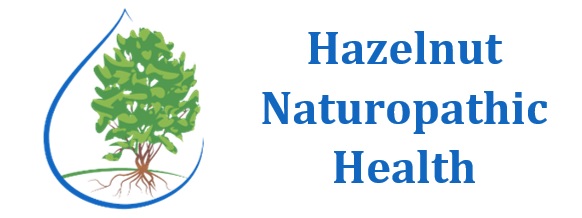
Being Social for Health
Being social may not be on most people's radar as important to health, but it certainly is. Take this for instance. Heart disease is the number one killer around the world—an estimated 17.9 million people die of this alone each year. One study found that among adults with coronary artery disease, socially isolated people were at a 2.4 times greater risk of cardiac death versus their more social peers. Humans have lived in group settings with each other for thousands of years. Families and tribes, villages and cities are just a few examples. These social units and living spaces create environments where people can live, work, and play together. Getting out of your shell and exploring the world just might be the health boost you were looking for.
Relating to Others
Social isolation is a form of torture prisoners of war are subjected to. This is because relating to other people is critical for optimal health. Research tells us that the quality and quantity of relationships can greatly impact health. We know inflammation goes up and immune function goes down without social support. These two factors are associated with many adverse health outcomes and mortality. Being social is important to human health.
How to Get More Social
Humans need to be social. A hormone called oxytocin, known as the 'bonding hormone,' gets released during physical and social interactions. These include holding hands, scratching behind your pet's ear, massaging, and sexual intimacy. Oxytocin leads to more pleasant, positive feelings. If your friend group is limited, it may be time to branch out for your health. Below are a few suggestions to get more social time in your life.
Get Connected.
Nowadays, many people meet each other online. MeetUp, a free app, can help you find people with the same hobbies or interests that you have. There are public events where like-minded folks can hang out with each other. Feel free to bring a friend or family member with you to help break the ice. NextDoor is another app that can help connect people in the same neighborhood. There are many apps to choose from depending on your interests and goals.
Counseling.
In general, if you have difficulties relating to people, counseling may be good for you. This may be especially true for those who tend to be more introverted. As a matter of fact, research shows people who see themselves as introverts are generally healthier with higher levels of social interaction. Something as simple as talking to another human being in a safe place can be helpful.
Volunteering.
Science tells us volunteering has health benefits. Volunteers tend to have better physical and mental health, self-esteem, and life satisfaction. Additionally, they also tend to have lower depressed mood, stress, and lower risk of overall mortality. Many local charities and associations are always looking for volunteers. With so many to choose from, it allows you the luxury of choosing something you're passionate about. Volunteering can be most helpful for ethnic minorities, older adults, those with less education, those who are single, or those who are unemployed.
Relating to Yourself
Finally, don't forget about relating to yourself. Too many people have a negative inner voice, and it can make getting out of your social comfort zone hard. Always try to have a positive attitude with yourself. It's good to be honest with yourself about your strengths and weaknesses. Everyone has flaws, but it's important not to be excessively negative with yourself. Thinking negatively will create more negative thinking and create a perpetually stagnant cycle of inner dialogue. Instead, learn to love and accept yourself despite your imperfections. Work on accepting and respecting yourself over time to become the strongest 'you' possible.
Need help with this? It can take months and years of self-reflection and work to find self-acceptance. Counseling is a very good option, but many podcasts and self-help books on the market may be helpful. Remember to build yourself up from the inside out, one day at a time.
The Bad About Being Social
Being more social can be great, but most of us know that being with people can also be stressful. For example, marriage can be both a blessing and a curse. Relationships naturally have ups and downs, and the lows aren't healthy in and of themselves for either partner. Marital strain can be detrimental to physical health, and the health strain becomes greater with age.
Some relationships may lead to poor choices, like eating too much or smoking and/or drinking more. Being around friends and family can also influence food choices in a negative way and become more damaging over time. Additionally, if you are caring for a sick loved one, being a caregiver can be challenging. This is especially true if you are the primary caregiver.
To help put this in perspective, those who are lonely or in social isolation for any reason tend to be less healthy. They have worse health habits in general, like smoking more than they would with a friend's support. Lonely people may also indulge in too much food or alcohol as a type of self-medication that is also detrimental.
Just Remember…
Remember, as poet John Donne said, "No man is an island." Even with the ups and downs of being with people, overall, the hassle is worth it. Hugging, laughing, or being in the same space as another human can be valuable. Humans are social creatures, and relating to your fellow man can be a rewarding experience. Going to local events at your library, donating your time, or finding people with your hobbies may all be healthy for you. Reach out to your family, friends, and medical team as needed to help you find the social connection and happiness you deserve.
Resources:
- Martino J, Pegg J, Frates EP. 2015. "The Connection Prescription: Using the Power of Social Interactions and the Deep Desire for Connectedness to Empower Health and Wellness." Am J Lifestyle Med; 11(6): 466-475. doi: 10.1177/1559827615608788. PMID: 30202372; PMCID: PMC6125010.
- Platon, MC. 2024. "How to Accept Yourself? 9 Tips to Love Yourself." NEW TRENDS IN PSYCHOLOGY; 6(1): 38-42.
- Umberson D, Montez JK. 2010. "Social Relationships and Health: A Flashpoint for Health Policy." J Health Soc Behav; 51 Suppl(Suppl): S54-66. doi: 10.1177/0022146510383501. PMID: 20943583; PMCID: PMC3150158.
- Tuovinen S, Tang X, Salmela-Aro K. 2020. "Introversion and Social Engagement: Scale Validation, Their Interaction, and Positive Association With Self-Esteem." Front Psychol; 11: 590748. Doi: 10.3389/fpsyg.2020.590748. PMID: 33329251; PMCID: PMC7734327.
- World Health Organization. N.D. "Cardiovascular Diseases." Retrieved Jan. 27, 2025. https://www.who.int/health-topics/cardiovascular-diseases#tab=tab_1
- Yeung, J.W.K., Zhang, Z. & Kim, T.Y. 2018. "Volunteering and Health Benefits in General Adults: Cumulative Effects and Forms." BMC Public Health; 18(8). https://doi.org/10.1186/s12889-017-4561-8

Leave a Comment
(0 Comments)